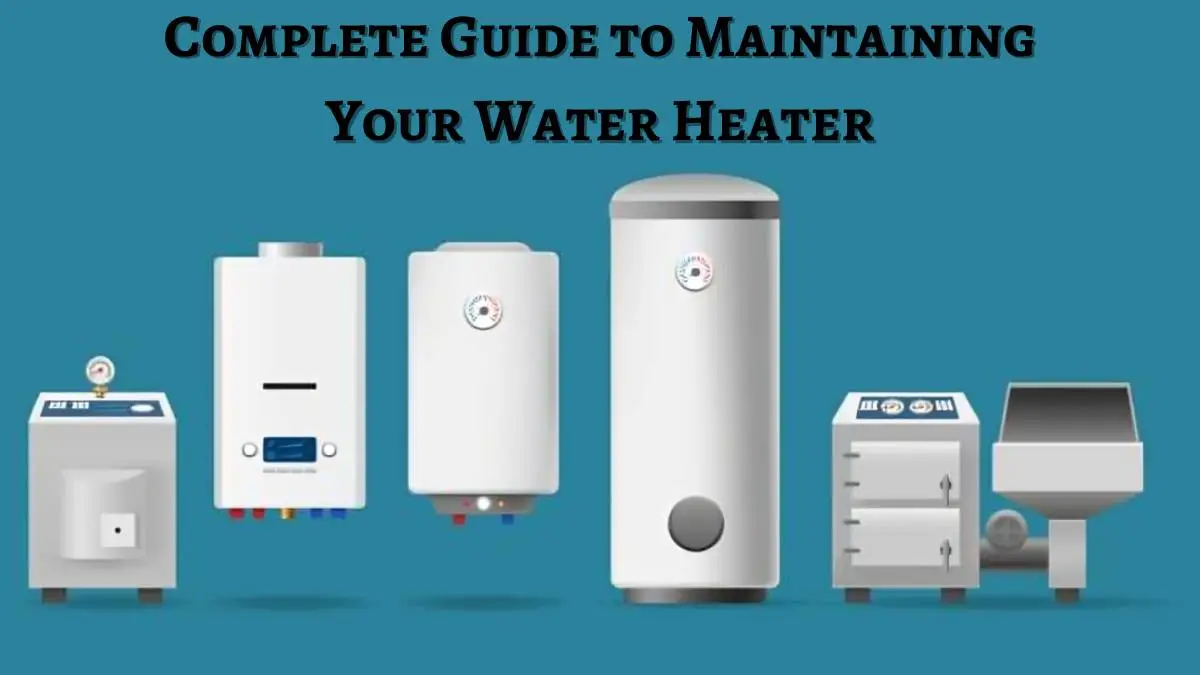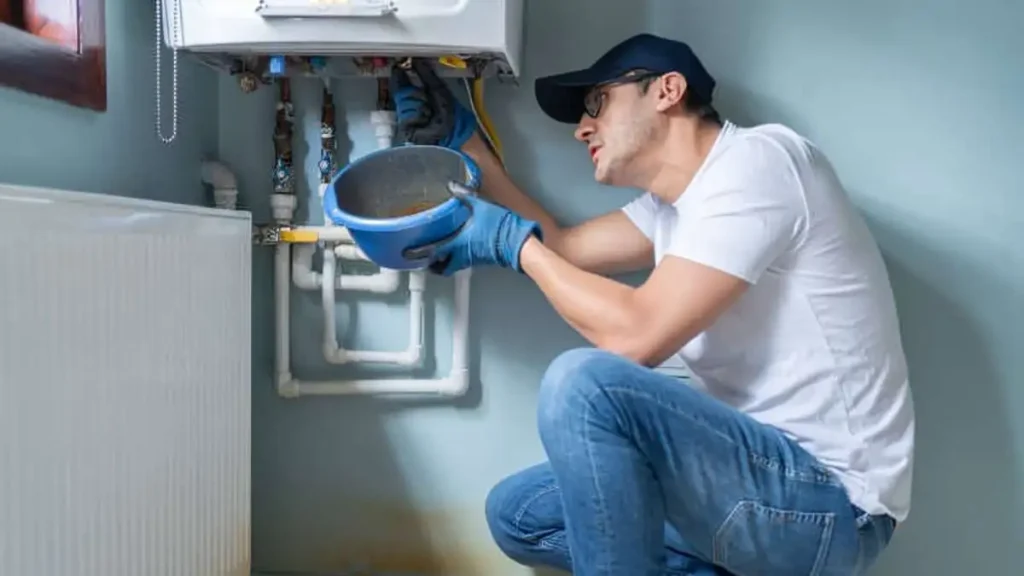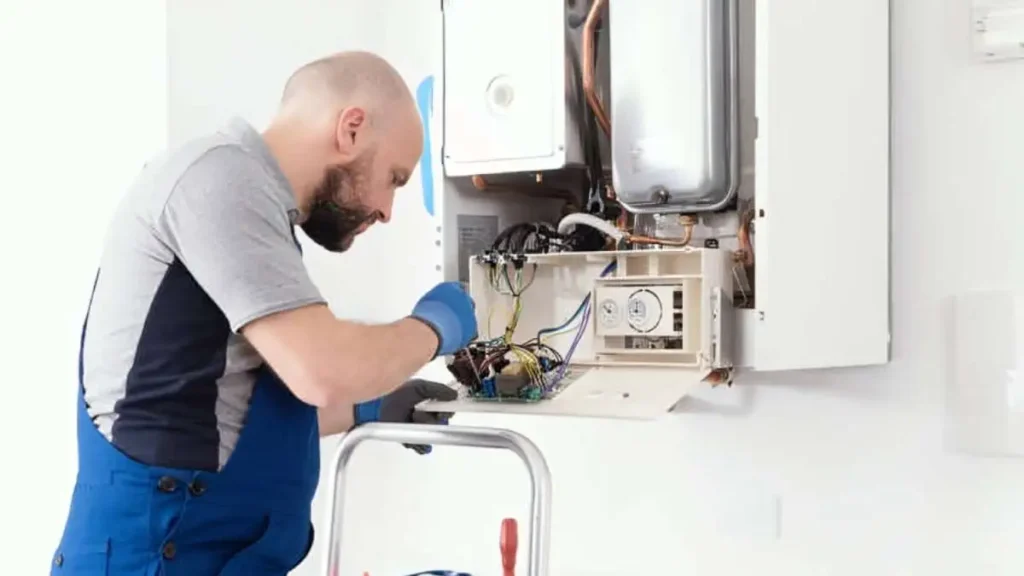HOME IMPROVEMENT
A Homeowner’s Guide to Maintaining Your Water Heater

A well-maintained water heater is essential for ensuring a reliable supply of hot water in your home. Regular maintenance not only extends the lifespan of your water heater but also improves its efficiency, saving you money on energy bills. This guide provides Reno homeowners with essential tips for maintaining their water heaters, common issues to watch out for, and when to seek professional help.
Table of Contents
Understanding Your Water Heater
Before diving into maintenance tips, it’s important to understand the basic components of your water heater. The main types of water heaters include tankless (on-demand) and traditional tank water heaters. Tankless water heaters heat water directly without storing it in a tank, providing hot water only when needed. Traditional tank water heaters store hot water in a reservoir tank, constantly heating it to ensure a steady supply.
Key components of a water heater include the thermostat, which regulates the temperature, and the heating element, which heats the water. The anode rod, a critical component, prevents tank corrosion by attracting corrosive elements in the water. Understanding these components helps you perform effective maintenance and identify potential issues early.
Regular Maintenance Tips
Regular maintenance is crucial for keeping your water heater in top condition. One of the simplest and most effective maintenance tasks is flushing the tank annually. Sediment buildup at the bottom of the tank can reduce efficiency and damage the heating element. To flush the tank, turn off the water heater, connect a garden hose to the drain valve, and direct the water to a nearby drain. Open the drain valve and let the water flow until it runs clear.
Checking the anode rod every few years is also essential. The anode rod attracts corrosive elements, preventing the tank from rusting. Over time, the rod corrodes and needs to be replaced. To check the anode rod, turn off the water heater, drain a few gallons of water, and unscrew the rod from the top of the tank. If the rod is heavily corroded or less than half an inch thick, it’s time to replace it.
Maintaining the correct temperature setting can prevent overheating and reduce energy consumption. The recommended setting is usually around 120°F (49°C). This temperature is hot enough to prevent bacterial growth but not so high that it causes scalding or increases energy use significantly. Adjusting the thermostat to this setting can improve efficiency and safety.
Inspecting and testing the pressure relief valve regularly ensures it’s functioning correctly. This valve releases excess pressure from the tank to prevent it from exploding. To test the valve, lift the lever and let it snap back. If water flows out, the valve is working correctly. If not, it may need to be replaced.

Common Water Heater Issues
Strange noises, such as popping or rumbling sounds, often indicate sediment buildup. When sediment heats up, it can produce these noises. Flushing the tank can help eliminate the sediment and reduce the noise. If the problem persists, it may be due to a faulty heating element or other internal issues.
Leaks around the water heater can signal several problems, from loose connections to a corroded tank. Checking all connections and tightening them if necessary can resolve minor leaks. However, if the tank itself is leaking, it may need to be replaced.
Discolored water is another common issue, often caused by rust or sediment in the tank. Flushing the tank can help clear out the sediment. If the problem persists, it might indicate a deteriorating anode rod or corrosion inside the tank.
Energy Efficiency Tips
Improving your water heater’s energy efficiency can save you money on utility bills and reduce your environmental impact. One effective way to enhance efficiency is to insulate the water heater and the surrounding pipes. Insulating the tank helps retain heat, reducing the energy required to keep the water hot. Pipe insulation prevents heat loss as hot water travels to faucets and showers, improving overall efficiency.
Using a water heater timer can also improve efficiency. A timer allows you to set specific times for the water heater to operate, such as during off-peak hours when electricity rates are lower. This scheduling can help reduce energy costs without sacrificing comfort.
Installing low-flow fixtures and water-saving showerheads can reduce hot water usage, lessening the demand on your water heater. These fixtures maintain water pressure while using less water, enhancing efficiency without compromising performance.
Professional Maintenance and Repairs
While many maintenance tasks can be performed by homeowners, some issues require professional expertise. Annual inspections by a qualified plumber can ensure your water heater is operating efficiently and catch potential problems early. Professional water heater repair Reno services can perform thorough cleanings, check for internal issues, and make necessary adjustments.
If you experience persistent problems, such as repeated leaks or insufficient hot water, it’s best to call a professional. They can diagnose and repair complex issues that may not be apparent to the untrained eye. For example, if your water heater frequently trips the circuit breaker, a professional can identify and fix the underlying electrical issues.

When your water heater reaches the end of its lifespan (typically 8-12 years for traditional tank heaters), a professional can help you choose and install a new, energy-efficient model. Upgrading to a modern, efficient water heater can provide better performance and lower energy costs.
Silver State Plumbing Reno offers expert water heater services, ensuring your system remains efficient and reliable. Their team of professionals is equipped to handle any water heater-related issues, providing peace of mind for homeowners in Reno.
Seasonal Maintenance Tips
Reno’s seasonal changes can impact your water heater’s performance. In the winter, the cold weather can cause the water heater to work harder, increasing energy consumption. To combat this, insulate the tank and pipes to retain heat and reduce energy use. During the summer, lower the thermostat setting slightly to save energy, as the warmer weather means the water heater doesn’t have to work as hard to maintain the desired temperature.
Spring and fall are ideal times for thorough maintenance checks. Flush the tank, inspect the anode rod, and test the pressure relief valve during these transitional seasons to ensure optimal performance year-round. Regular maintenance during these times can prevent unexpected issues and ensure your water heater is ready for the demands of winter and summer.
Conclusion
Maintaining your water heater is essential for ensuring a reliable supply of hot water and improving energy efficiency. By understanding your water heater, performing regular maintenance, addressing common issues promptly, and knowing when to call a professional, you can extend the lifespan of your water heater and keep it running smoothly. For expert assistance, consider reaching out to Silver State Plumbing Reno. Their expertise in water heaters and plumbing systems ensures your home remains comfortable and efficient throughout the year.
-

 GENERAL2 months ago
GENERAL2 months agoUncovering the World of кинокрадко: The Dark Side of Film Piracy
-

 GENERAL2 weeks ago
GENERAL2 weeks agoUnveiling the Art of преводсч: How Translators Bridge Language Barriers
-

 YOGA1 year ago
YOGA1 year ago4 Person Yoga Poses for Beginners
-

 GENERAL2 months ago
GENERAL2 months agoThe Journey of iamnobody89757: From Anonymous User to Internet Sensation























